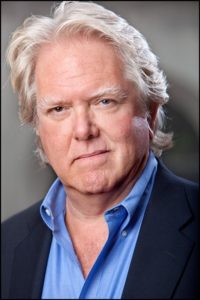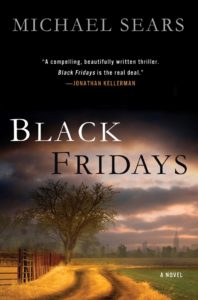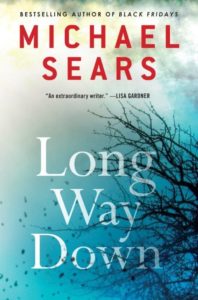A former Wall Street executive Michael Sears talks to FTF News in a Q&A about changing his career 13 years ago when he dove into thriller fiction.
(As we head into the Labor Day weekend, it’s a time to reflect upon accomplishments and what needs to happen next. It’s also a time for people to evaluate where they are in their career and even if they want to stay in that career. For Wall Street veteran Michael Sears, a former managing director at the former Paine Webber (now part of UBS) and Jefferies & Co., (now Jefferies Financial Group), the time to pivot was 13 years ago when he decided to leave Wall Street and become a full-time writer of thriller novels. Since then, he has published a successful series of four novels: “Saving Jason,” “Black Fridays,” “Mortal Bonds,” and “Long Way Down.” He has mined his time on Wall Street for his fiction and added a few plot twists that are more visceral than the turmoil of finding the right pricing of an instrument or optimizing back-office operations. He took part in the recent ThrillerFest event in New York City and took time out of his busy schedule to answer questions from FTF News about making a major career change.)

Michael Sears, author
Q: What were the biggest obstacles you experienced in your professional life on Wall Street? How did you overcome them?
A: Blending the demands of work and family was the constant challenge of my time on Wall Street.
The daily business was certainly stressful at times, but what the family remembers are the moments when I would arrive home just in time for a late dinner and the phone would ring. Tokyo calling. Or the nights when I would be awakened multiple times to price securities, or to discuss future trades. I remember the times that I was having a difficult time at work and had to fight to keep it from following me home. I did not always succeed.
Q: What made you want to become an author?
A: I have always written. I love to tell stories. My mother gave me a love of words and reading, my father the gift of story-telling.
My mother introduced me to many authors and encouraged me to expand my reading of both classics and modern authors. I still re-read many of them. P.G. Wodehouse, Dorothy Sayers, James Thurber, Dickens, and later Joseph Heller, Hemingway, and others.
 Q: When did you leave financial services?
Q: When did you leave financial services?
A: My last year on Wall Street was 2005. It was a good time to leave, and I was ready. But I was forced into making the decision.
My body began to revolt against the daily grind. I have never regretted leaving, but then I never regretted being there either. There are moments I regret. Mistakes I made, people I may have disappointed. But I am overall proud of what I did, and prouder now of what I get to do.
Q: What lessons have you learned from your financial services career that have helped you in your new life as an author?
A: Two important life lessons carried me through a 20-plus career on Wall Street, and that still apply in my life today.
The first is that to be good at something requires hard work. One cannot wish to be a good writer. You need to work at it every day. Completing a novel is work. If you’re doing it for fun, you will never have the discipline to finish and to get it right.
The second life lesson may seem to contradict this, but it really doesn’t. You can’t force a trade, and have it work. There is a time for pushing, and a time for waiting and preparing. It is the same with writing a book. There are days when nothing is going to come. You can’t force it, but you can still spend the day studying it, thinking about it, identifying problems, and editing. Always editing.
Finally, neither trading nor writing is ever complete. You are never done, so you might as well keep going.
Q: What are some of the biggest epiphanies that have affected you personally and that have informed your work as a writer?
A: The moment when my agents took me to lunch for the first time and I realized part way through that I was not pitching them, they were pitching me. My work had connected with these two people. It was a charge.
Later on, struggling over a book that never seemed quite right, I started it over one more time. And that time it flowed. I am not normally a fast writer, but that version of the book flew out of my head and onto the page.
The lesson? Keep plugging away and trust yourself.
 Q: How did you develop your life philosophy?
Q: How did you develop your life philosophy?
A: Everything in balance. Work and family feed on each other. I cannot be productive if I am not happy at home, nor can I be fully myself and at peace with my loved ones if I am not being productive. I was lucky in my career to work at a firm for many years that valued this balance.
Q: What advice can you give others on Wall Street who are thinking about making the leap into the writing life?
A: Writing is harder than trading. It is the hardest job I have ever had. The pay sucks. The business makes no sense. No one knows anything. But if you love the word, and get real satisfaction from creating a great sentence, go for it. I have never had so much fun.
Q: What can you tell us about your latest book and other future projects?
A: I will continue to write crime fiction, though I am branching out. I have written some short stories, one of which is due out in the Nov./Dec. Ellery Queen Mystery Magazine.
And I have just finished a new book — murder and mayhem and financial fraud — focusing on real estate, and air rights in Queens, New York.
Need a Reprint?